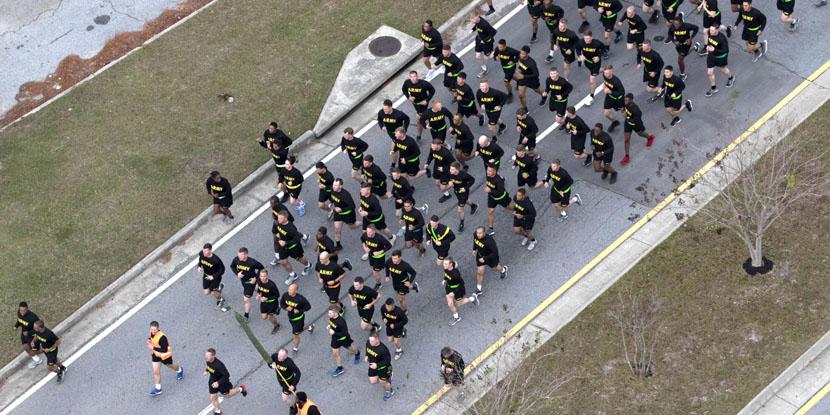Activity Trackers Releasing 'Too Much Information,' DOD Warns
Although GPS-enabled activity-tracking applications like Strava may help warfighters keep fit, the applications may also reveal important information about military bases or soldier locations. One application revealed a concentration of U.S military personnel at a base overseas when shared as social media postings.
Given the rising concerns, officials at the Pentagon announced at a January 29 press conference the DOD would be looking into the issue, according to a report from Jim Garamone of DOD News.
"The concern comes from a heat map posted by Strava—the makers of a fitness tracking application that shows the routes service members run or cycle in their daily exercises,” Garamone reported. “These maps can show military bases and may be used to target individuals.”
Individuals upload their data to Strava to share their activity in the form of a heat map so fellow exercisers can download the maps to find a good running path or cycling route, Garamone explained.
As a caution, DOD is asking service members and military civilians to use “the strictest privacy settings” when using the wearable fitness devices, said Col. Robert Manning, USA, director of Defense Press Operations. Manning confirmed that some service members are already prohibited from wearing activity trackers in certain areas and during certain operations.
"We take these matters seriously, and we are reviewing the situation to determine if any additional training or guidance is required, and if any additional policy must be developed to ensure the continued safety of DOD personnel at home and abroad,” Manning noted. “The rapid development of technology requires the rapid refinement of policy and procedures to enhance force protection and operational security.”
In a January 29 letter in response to the rising concerns, Strava CEO James Quarles also stated that Strava takes "this matter seriously," and the company understands its responsibility related to the data shared with it. "Our heatmap provides a visualization of activities around the world, and many of you use it to find places to be active in your hometown or when you travel," Quarles said. "In building it, we respected activity and profile privacy selections, including the ability to opt out of heatmaps altogether. However, we learned over the weekend that Strava members in the military, humanitarian workers and others living abroad may have shared their location in areas without other activity density and, in doing so, inadvertently increased awareness of sensitive locations."
Quarles promised that the company is committed to working with military and government officials "to address potentially sensitive data." The company is currently reviewing "motivational" features, such as the heatmap, "to ensure they cannot be compromised by people with bad intent." Strava will continue "to increase awareness of our privacy and safety tools." Moreover, their engineering and user-experience teams are simplifying privacy and safety features "to ensure you know how to control your own data."





Comments